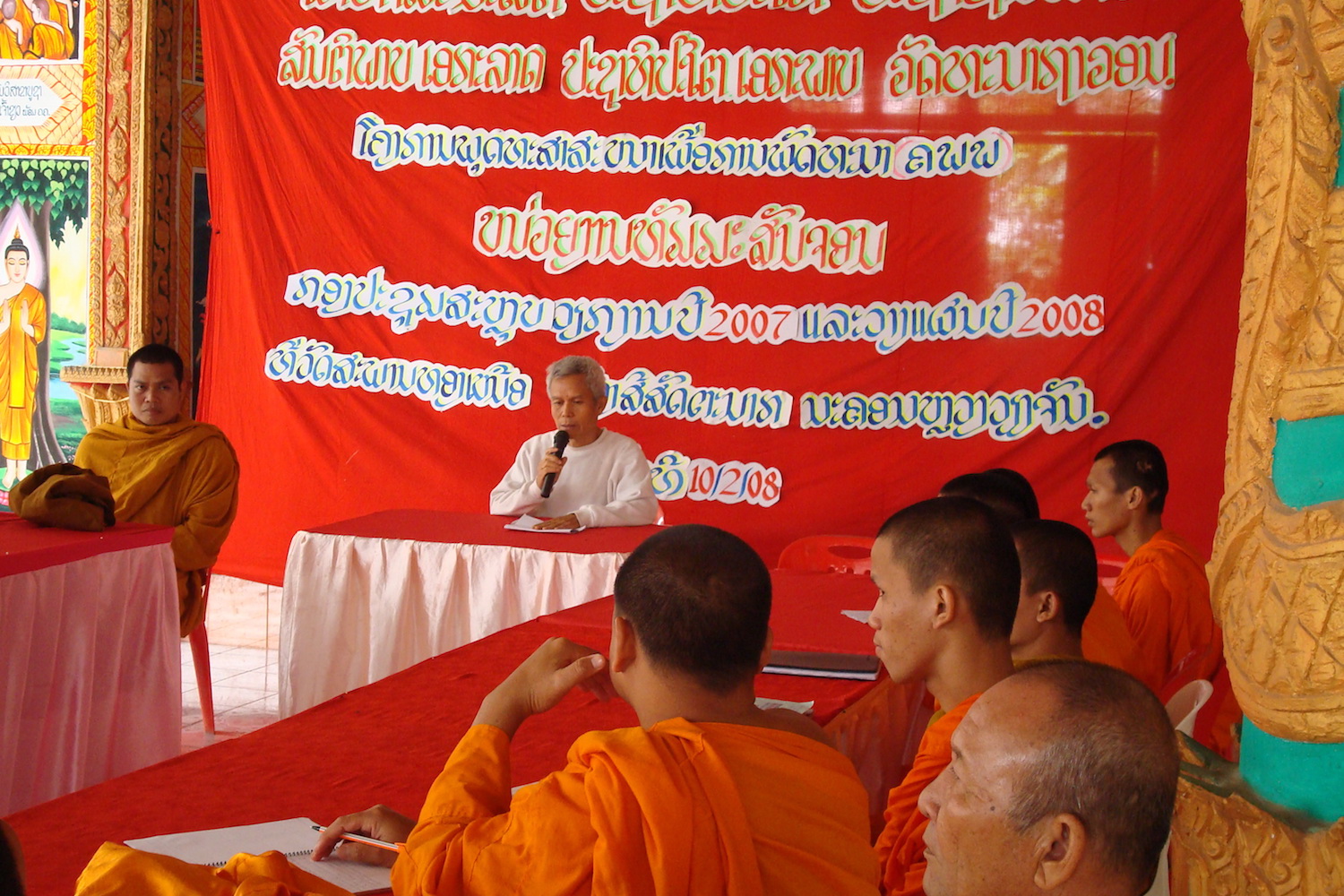Bangkok Post: 15 September 2015
Activist Sombath now missing for 1,000 days

One thousand days after civil society leader Sombath Somphone was abducted at a police checkpoint in Vientiane, Lao authorities say they still have no clues about what may have happened to him.
“It’s been 1,000 days of waiting, 1,000 days of anxiety — and 1,000 days of nothing,” Shui Meng Ng, Mr Sombath’s wife, told a panel held to mark the milestone.
Mr Sombath, a renowned community activist, was last seen on Dec 15, 2012, when he was stopped at a police checkpoint in Laos’ capital city. While his apparent abduction was caught on CCTV camera footage, the probe into the case has stalled.
The video footage shows Mr Sombath being stopped at the police checkpoint and several men forcing him into another vehicle and driving away.
Four days after the activist went missing, a statement from the Lao Ministry of Foreign Affairs acknowledged Mr Sombath was stopped at the checkpoint and his jeep was later driven away by another individual.
The police promised to investigate and return Mr Sombath to his family, said Ms Shui Meng, adding she felt hopeful then.
But in the following months, the Lao government backtracked and said it could no longer confirm whether the man in the CCTV footage was the activist.
The government has held to this position ever since, said Kinglsey Abbott, a legal adviser with the International Commission of Jurists (ICJ).
“The investigation has been perpetually ongoing,” Mr Abbott added. No information regarding progress in the case has been released to Mr Sombath’s wife or the public.
In the hope of re-energising the probe, the ICJ published a report in December last year, making a series of recommendations to authorities investigating the case.
The authors of the report reviewed the case materials at hand before concluding it was still imminently solvable.
According to them, Laos possesses all technical tools necessary to carry out this investigation and could seek further assistance from agencies in other states for forensic examinations of the crime scene, vehicles involved and the CCTV footage.
The government’s response to the case is deemed inadequate by many international agencies, the ICJ adviser said.
Mr Sombath’s case was also brought up during the Universal Periodic Review this year, in an assessment of Laos’ human rights record.
While it has yet to ratify the United Nations International Convention on the Protection of All Persons from Enforced Disappearance, Laos signed the treaty in 2008.
By doing so, Mr Abbott said, the government took on obligations to conduct a prompt, impartial and effective probe into Mr Sombath’s case and inform Ms Shui Meng and other relatives of their progress.
However, international queries and recommendations have fallen on deaf ears, Ms Shui Meng said. The pressure on the Lao government to give answers persists, but the responses have grown more vague and contradictory over the years, she says.
Mr Sombath’s case remains a concern for the international community, but she adds that inside Laos, there is increasing fear of even mentioning the activist’s name.
A few people have quietly told her they were warned not to ask about Sombath Somphone’s disappearance, nor talk about his community-development work or mention the name of the organisation he founded, the Participatory Development Training Centre.
His enforced disappearance has affected the work of civil society organisations in Laos, she added, as activists hold increasing concerns for their safety.
According to Debbie Stothard, a permanent delegate to the Association of Southeast Asian Nations, Lao authorities seem intent on denying regional civil society the right to discuss social justice.
Earlier this year, the Asean People’s Forum — a civil society conference held in Kuala Lumpur, on the sidelines of the Asean Summit — was told to remove references to Mr Sombath’s disappearance, dams, rights of LGBT and indigenous people, and multiparty democracy from their statement.
They were told to do so in a letter purportedly signed by civil society groups following a meeting at the Lao Ministry of Foreign Affairs, Ms Stothard said.
The letter had no signatures and none of these organisations were named, she said.
